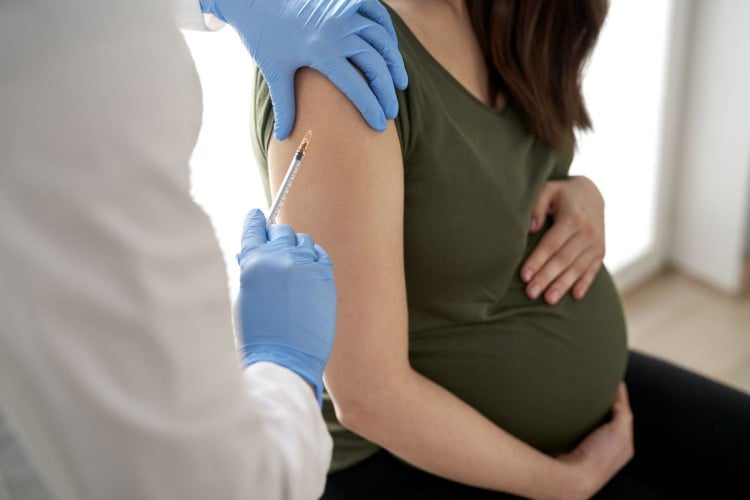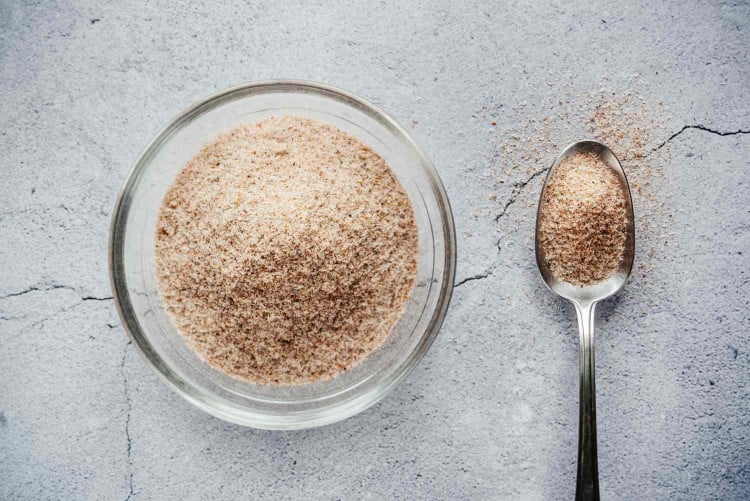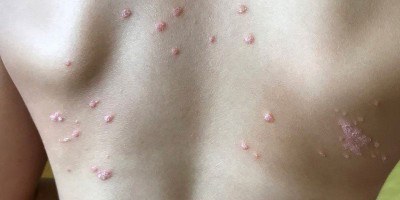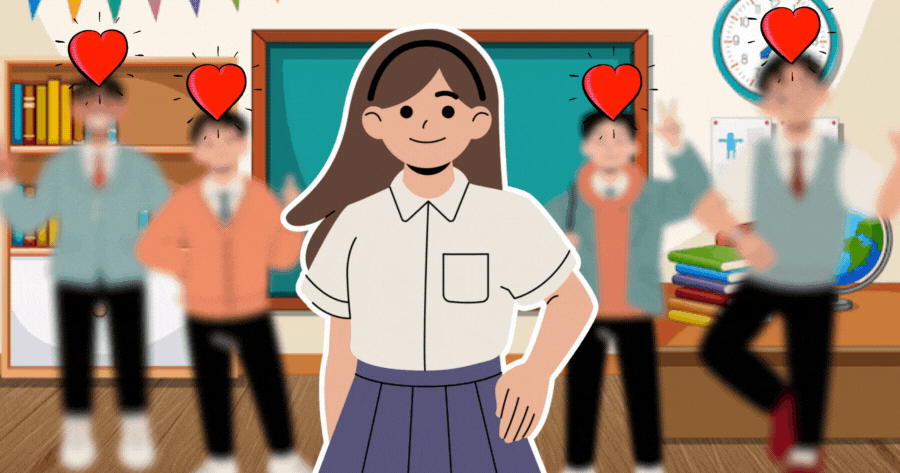- The Food and Drug Administration recently approved Pfizer’s new RSV vaccine to protect infants.
- The vaccine is administered during pregnancy and is 82% effective at preventing severe illness in newborns in the first 90 days after they were born.
- Experts note that the approval of this shot is a milestone in infant care.
Pfizer's new RSV vaccine for infants, Abrysvo, just received approval from the Food and Drug Administration (FDA).
Respiratory syncytial virus (RSV) triggers up to 80,000 pediatric hospitalizations and 300 pediatric deaths annually in the United States. While most infants who contract RSV develop mild respiratory symptoms—like congestion, cough, and fatigue—and recover smoothly, some experience difficulty breathing or develop further complications like pneumonia.
There is no cure for RSV, but a safe and effective vaccine intended to prevent serious symptoms is a step in the right direction.
Pfizer's RSV vaccine for newborns is the first of its kind.
Results from the phase 3 clinical trial evaluating the vaccine found that the shot, which is administered during pregnancy, is 82% effective at preventing severe illness in newborns in the first 90 days after they were born and 69% effective up to six months after their birth.
"A reliable and efficacious vaccine against RSV for infants has been irritatingly elusive for many years, and it represents a significant unmet clinical need. This degree of protection could be a game-changer for newborns,” Ross Kedl, PhD, professor of immunology and microbiology at the University of Colorado Anschutz Medical Campus, told Health.

Getty Images / Anna Bizon / EyeEm
How the New Infant RSV Vaccine Works
To achieve the goal of protecting a newborn from RSV, Pfizer’s vaccine is designed to be given to the mother during pregnancy.
When vaccinated, the mother’s body starts to make antibodies that can quickly recognize and destroy the virus and infected cells. Those maternal antibodies “then cross the placental barrier and provide protection in the newborn infant,” said Kedl.
Providing newborns with protection is crucial since they have immature, developing immune systems making them more vulnerable to infectious diseases within the first few weeks of life.
New moms can extend the protection after delivery by breastfeeding their babies, as research has shown that breast milk also contains protective antibodies that can be passed to the infant.
That said, the lifespan of antibodies is approximately six months, so over time the protection will wane, noted Kedl. Most infants are exposed to RSV by the age of two, so the shot will provide protection when babies need it the most.
The vaccine was well-tolerated and no serious safety events were reported in the clinical trials, said Alok Patel, MD, a pediatric physician at Stanford Medicine Children’s Health.
The shot doesn’t contain any added adjuvants—ingredients used to boost a person’s immune response. “This makes the vaccine have fewer immediate side effects (post-vaccination fever, aches, etc.), making it all the easier to decide to take as an expecting mother,” Kedl said.
The Impact of a RSV Vaccine for Infants
Most children who contract RSV have mild cold-like symptoms and recover within a week. However, some infants—particularly those who were born premature or have an underlying health condition like chronic lung disease or congenital heart disease—develop more serious symptoms, explained Jill Purdie, MD, a board-certified OB/GYN and medical director at Pediatrix Medical Group.
Each year, about 2.1 million children in the U.S. visit a doctor for RSV. In fact, RSV is the leading cause of hospitalization in children under one; it’s also the main cause of pneumonia in children under one.
An effective maternal RSV vaccine could avert thousands of hospitalizations and deaths among infants under 6 months. According to Purdie, Pfizer’s shot would help significantly reduce this burden.
“Globally, RSV causes around 140,000 deaths per year so a safe and effective–and available–vaccine would be a monumental achievement for public health,” said Patel.
Alok Patel, MD
Globally, RSV causes around 140,000 deaths per year so a safe and effective–and available–vaccine would be a monumental achievement for public health.
— Alok Patel, MD Can Adults Get RSV From Kids? Here's What to Know About This Contagious Virus
Next Steps in Vaccine Availability
It’s unclear who is immediately eligible for the shot, however, according to Purdie, it’s expected that all pregnant people will be candidates. “I assume the vaccine would be offered to all pregnant women since all babies would be at risk,” she explained.
Vaccine advisory boards with the Centers for Disease Control (CDC) and the American College of Obstetricians and Gynecologists (ACOG) will likely make recommendations in the near future, she added.
In anticipation of the FDA's approval, Pfizer planned to ramp up supply to ensure enough doses will be available when needed, a Pfizer spokesperson told Health earlier this year.
“Pfizer, in consultation with regulatory and health authorities, is eager to work collaboratively to make the vaccine available to provide protection prior to the peak of the next RSV season,” the company’s spokesperson said.
The shot is the first vaccine available for pregnant people to help protect their newborns against complications of RSV.
“The RSV vaccine will represent a crowning achievement in vaccine science,” Patel said. “RSV infects millions of people worldwide every year, and an effective vaccine has eluded scientists for decades.”







